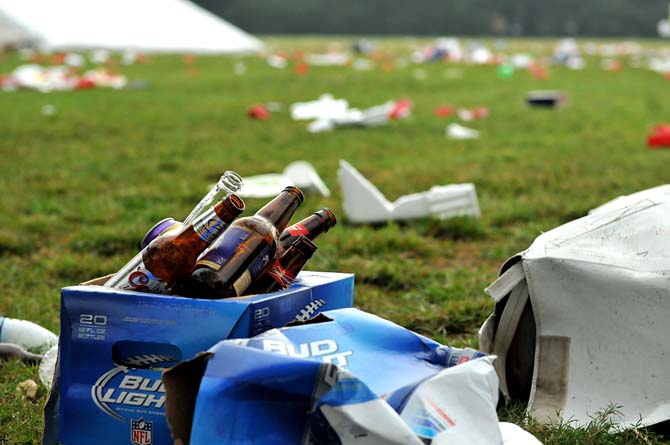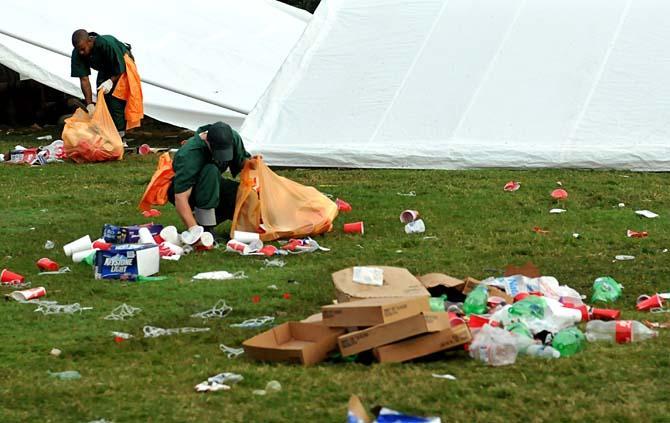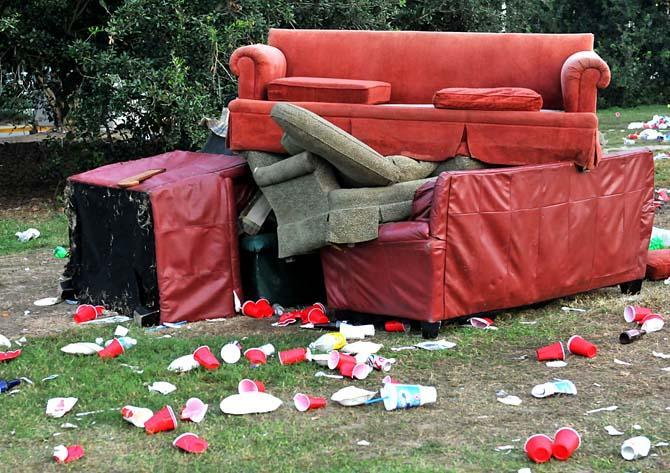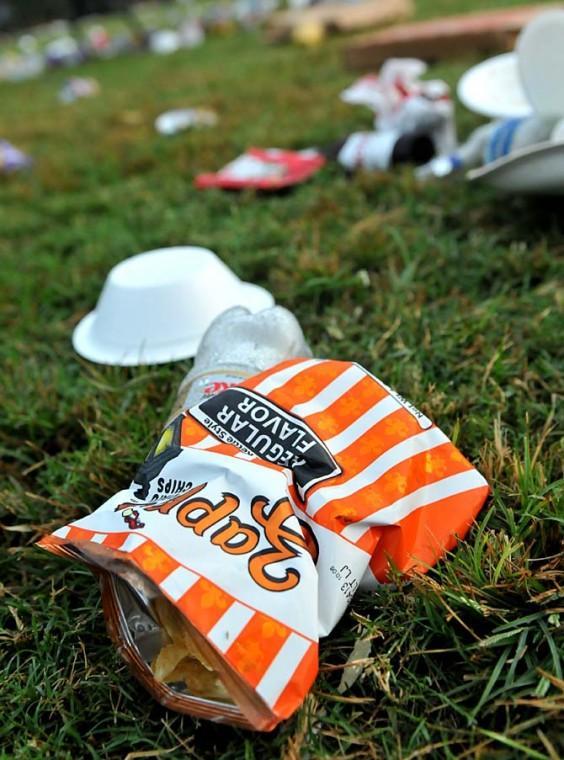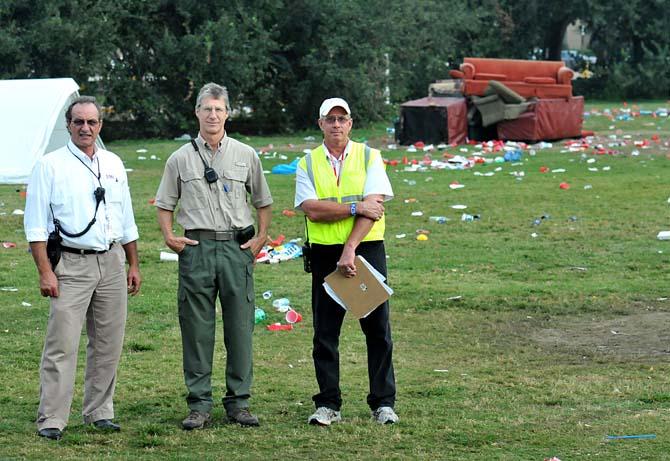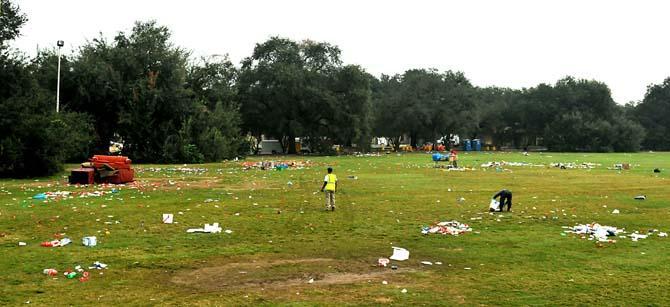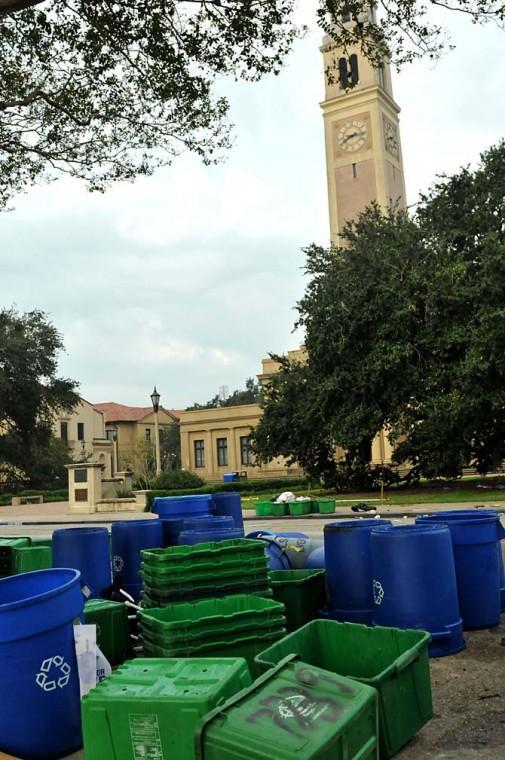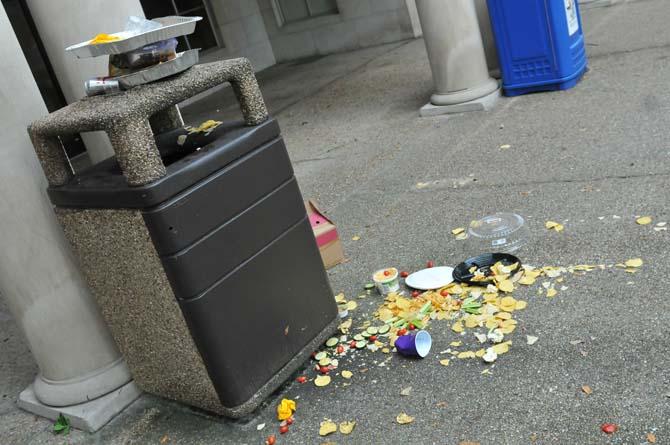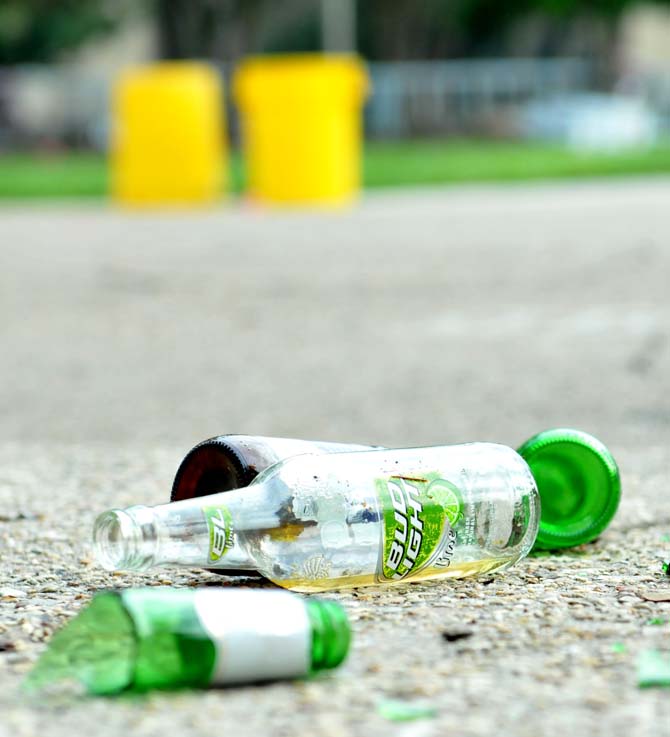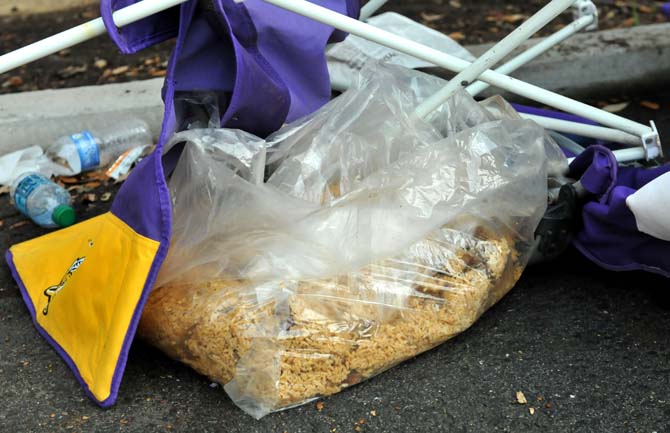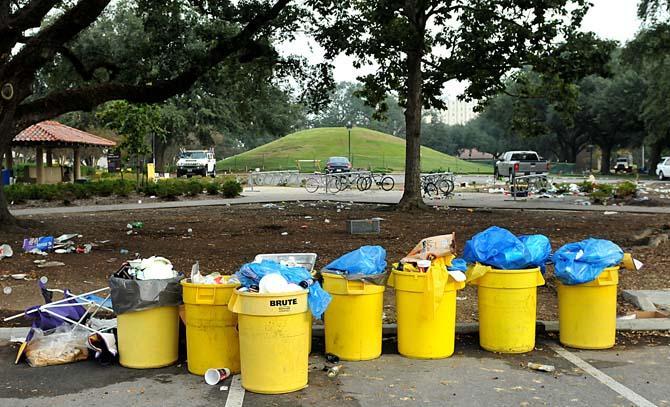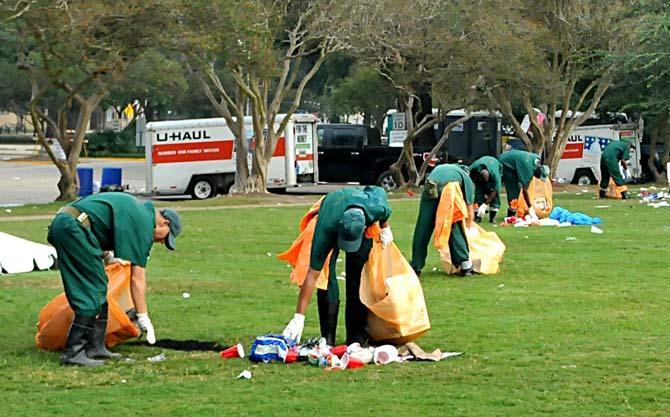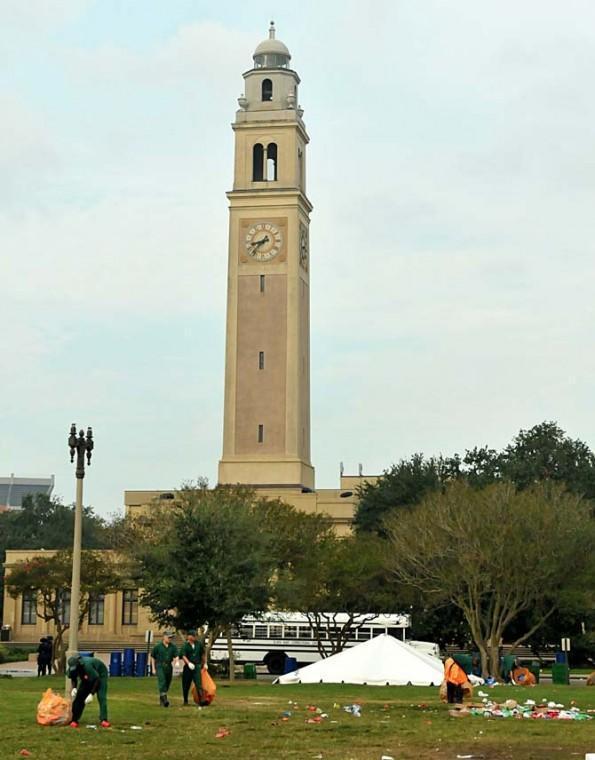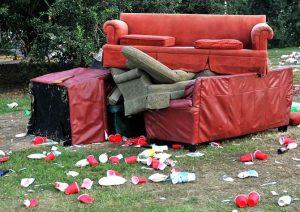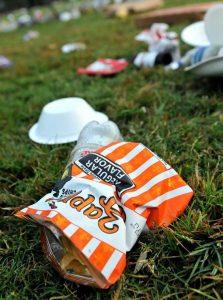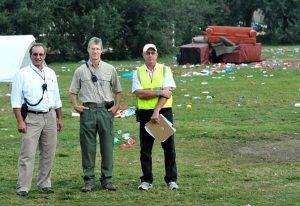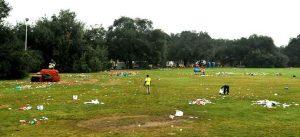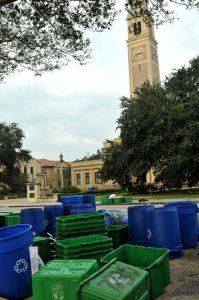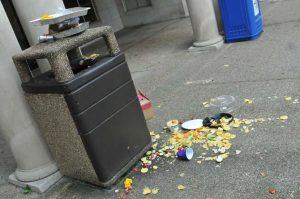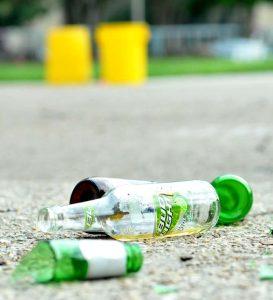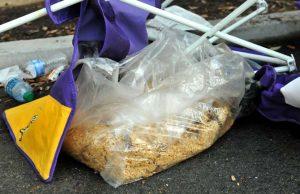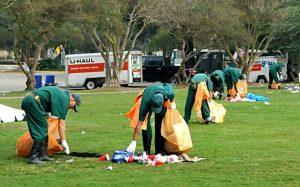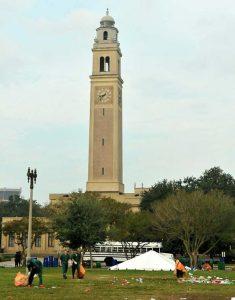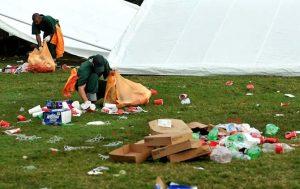When Louisianans wake up Sunday morning after an LSU home football game, there is one thing they can be sure of.
The sun will rise in the east, illuminating the blanket of litter lying in the wake of the tailgating explosion that rocked the University’s campus the day before.
And come Monday morning, besides a stray plastic cup or a beer bottle hidden in the bushes here and there, little evidence will remain of the state’s grandest weekend shebang.
“We have to make it look like this never happened,” said Maintenance Superintendent Hank Taylor.
Taylor helps oversee the cleanup of the University’s roughly 1,000-acre campus along with a 150-troop squadron.
“It’s like an army going into battle,” said Assistant Director of Landscape Services Fred Fellner, detailing the coordination of multiple crews among different shifts from Thursday until Monday during home football weekends.
Facility Services brings in six rear-loading dump trucks on contract with The Recycling Foundation in Baton Rouge to haul in the rubble collected from 3,000 32-gallon yellow bins and 150 95-gallon roll away bins, plus another 1,500 18-gallon recycling bins, Fellner said.
And that’s only for what’s outside the walls of Tiger Stadium.
Overall, Fellner said the outdoor cleanup costs about $40,000 for each home game, adding up to more than $300,000 for the 2012 football season.
But that number only covers Facility Services’ end of the deal.
“I have no idea what the gameday [cleanup] costs really are,” Fellner said, when taking into consideration several other University contracts and inner-stadium mop-up duties.
One key piece to the cleanup puzzle is prison inmate participation, since without it, Fellner said he has “no idea” how the job would get done.
On any given Sunday, inmates comprise about half of the cleanup work force, with the rest split between University employees and contracted laborers, all under the leadership of Grounds Manager Vince Patterozzi.
For example, following Saturday’s South Carolina game, 27 inmates came from Dixon Correctional Institute and 45 from Elayn Hunt Correctional Center, while Facility Services contributed 43 employees to an additional 32 contracted workers.
Although inmates only come on Sunday mornings, Facility Services’ job begins Thursdays at 4 a.m., bringing in extra portable toilets and trash bins, as well as making additional preparations, Patterozzi said.
The job’s end-time, however, is less exact.
The top of Sunday’s shift schedule, which looks like a pre-battle map of color-coordinated zones marked with specific tasks and leaders, reads: “Sunday: 4 p.m. ‘til complete.”
Some of the bigger obstacles during cleanup include glass, because of obvious safety hazards, as well as trash-diggers who leave messes in their wake.
“After kickoff, it looks relatively neat,” Fellner said. “And you come out the next morning, and it looks like a bomb went off, and you can’t really figure out what happened.”
One unusual issue has grown into quite a problem this year — couches.
While standing on the Parade Ground with a 15-foot pile of “throw away” couches sitting in the distance, Fellner estimated tailgaters leave behind at least 20 or 30 couches each week.
Workers leave things like grills, couches and tents alone until noon on Sunday. Then, the remaining goodies either get trashed or picked up by anyone who wants them, Taylor said.
If it rains, like during the Towson game, the only change comes in the form of plastic ponchos on everyone’s back.
“It doesn’t matter,” Taylor said. “Just like the mailman, just like Santa Claus, [the job] has to get done.”


